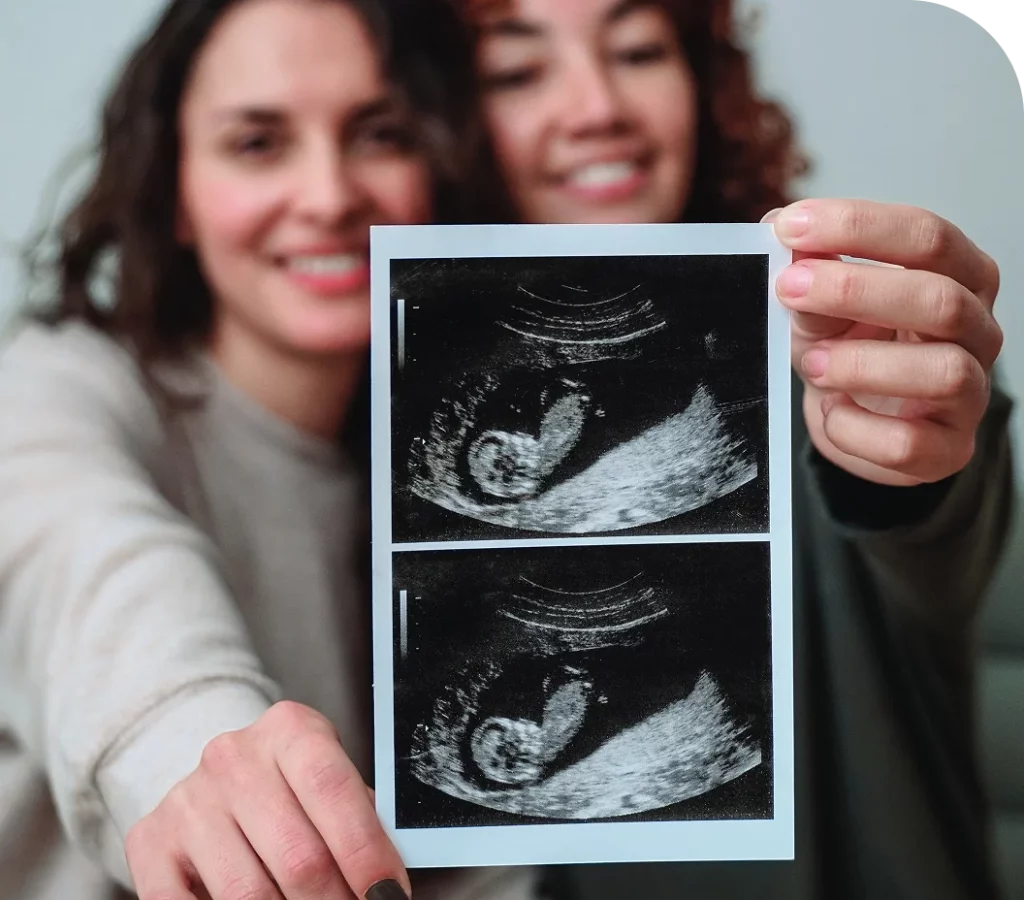Surrogacy in New Zealand

seeking information on international surrogacy options, click here.

Surrogacy in New Zealand has evolved over the years, reflecting broader changes in societal attitudes and legal frameworks. Initially, surrogacy arrangements were informal and often lacked the clarity and support that intended parents and surrogates needed. However, in 2004, the introduction of the Human Assisted Reproductive Technology Act provided a more structured and ethical approach to surrogacy, ensuring that the process is altruistic and focused on the well-being of all parties involved.
Since then, New Zealand has established itself as a country that values ethical practices in surrogacy, allowing individuals and couples to explore their family-building options with greater confidence. This journey can be both exciting and overwhelming, filled with hopes, questions, and emotions. Understanding the landscape of surrogacy in New Zealand can empower you to navigate the path to parenthood effectively.
This page will share insights into how surrogacy works in New Zealand, the legal requirements, and key considerations to keep in mind as you embark on this transformative journey.
How Does Surrogacy in New Zealand Work?
In New Zealand, surrogacy is only available to New Zealand citizens or residents. Both traditional (where the surrogate is the biological mother) and gestational surrogacy (where the surrogate carries an embryo not biologically related to her) are legal. However, intended parents must navigate the country’s strict regulations that prohibit commercial surrogacy—meaning surrogates cannot be paid beyond reasonable expenses.
Typically, surrogacy is used by couples or individuals who cannot carry a pregnancy themselves, including those with medical infertility, same-sex couples, and single people who meet the legal criteria.

Who can build a family in New Zealand?
New Zealand Citizens & Residents
Heterosexual Couples
Homosexual Couples
Singles
Legal Framework for Surrogacy in
New Zealand
New Zealand’s surrogacy laws are tightly regulated to ensure that the process remains altruistic. Payments to surrogates beyond covering reasonable expenses are illegal, and once the child is born, the intended parents must legally adopt the child through a New Zealand court. Additionally, all surrogacy arrangements must receive approval from the Ethics Committee on Assisted Reproductive Technology (ECART) before proceeding.
These regulations uphold the principle that surrogates are motivated by a genuine desire to help, rather than financial gain.
Only Altruistic Model is allowed
Intended parents must legally adopt their child
All arrangements need approval from ECART
Surrogacy Costs in New Zealand
While surrogacy in New Zealand is altruistic, intended parents still face costs, including medical expenses for IVF and fertility treatments, legal fees for drafting agreements and adoption, and covering the surrogate’s reasonable expenses, such as pregnancy-related medical bills and travel. Both parties may also need psychological support, adding to the total cost.
Overall, domestic surrogacy in New Zealand typically ranges between $30,000 and $50,000 NZD, depending on the complexity and specific requirements.
COSTS RANGE FROM
NZ$30,000
TO
NZ$50,000
Surrogate & Donor Match Times
One of the biggest challenges in domestic surrogacy in New Zealand is finding a surrogate or donor. Since commercial agencies are not allowed
to operate, intended parents must rely on personal connections or support networks, often leading to lengthy waiting times.

Surrogate Matching
It can take years for intended parents to connect with a willing surrogate, often through informal networks or online community groups. This prolonged search can significantly affect couples facing infertility, LGBTQ+ individuals seeking to start a family, and single parents who may have limited support networks.
Egg Donation
Egg donation in New Zealand can be challenging due to limited availability and reliance on informal networks for matching donors with intended parents. The law allows for donors to be reimbursed for expenses only, which can deter potential donors who might be interested in financial compensation. As a result, the process may involve lengthy waiting times. Intended parents also often navigate community-run groups to find donors, which can lead to uncertainties regarding the health and genetic background of potential donors.
It’s important to be prepared for these delays and engage with support communities early in the process.
Support Available for Domestic Surrogacy
Although surrogacy in New Zealand lacks agency support, there are various community-driven resources and support groups available:
Online Communities
Facebook groups like NZ IVF, Surrogacy, Donorship, Adoption Support and Egg Donation New Zealand provide platforms for intended parents, surrogates, and egg donors to connect, share experiences, and offer support. These communities can be valuable resources for finding potential surrogates and donors as well as navigating the surrogacy process in New Zealand.
Professional Services
Professional support is available to help navigate legal requirements and ensure that both parties are fully informed and supported throughout the process. It’s essential to have legal guidance during the surrogacy journey, especially during the drafting of agreements and adoption proceedings. Growing Families collaborate with a network of highly experienced lawyers who specialize in surrogacy and adoption law in New Zealand. To ensure you’re connected with the right legal experts for your unique situation, feel free to reach out to us for personalised recommendations.
Limitations of Domestic Surrogacy in New Zealand
Domestic surrogacy in New Zealand, while legal, has several limitations:
- No Commercial Agencies: Intended parents must find surrogates or donors independently, often resulting in long waiting times.
- No Payment for Surrogates: Surrogates cannot receive payment beyond reasonable expenses, which can limit the pool of available surrogates.
- Adoption Requirement: Intended parents must adopt their child after birth, which adds an additional legal step.
- Ethical Approval Process: The ECART approval process can be time-consuming, adding another layer of complexity and delay to the surrogacy journey.


International Surrogacy Options for New Zealanders
Many New Zealanders turn to international surrogacy due to the limitations of domestic surrogacy. Countries like the United States and Mexico can offer more structured and faster processes, including commercial surrogacy options, unavailable in New Zealand.
However, New Zealand’s laws apply when bringing the child back home. The child must be adopted in a New Zealand court, and depending on the country of birth, additional documentation such as a Certificate of Identity may be required to obtain citizenship or a passport for the child.
If you’re considering international surrogacy, read this page to explore your options or contact us for a personalised support. We can provide you with valuable insights and guidance tailored to your specific circumstances to help you navigate this journey.
FAQS
Surrogates in New Zealand must be at least 20 years old and have previously given birth to a child. They should also be a New Zealand citizen or resident and should not be paid for their services, as compensation is not permitted under New Zealand law.
Yes, gay and lesbian couples, as well as single individuals, can engage in surrogacy in New Zealand. The country’s surrogacy laws are inclusive and allow LGBTQ+ individuals and single people to pursue both traditional and gestational surrogacy. However, all surrogacy arrangements must comply with New Zealand’s regulations, including the requirement for altruistic surrogacy (no payments beyond reasonable expenses) and the adoption of the child after birth.
The timeline for surrogacy can vary significantly depending on individual circumstances, including the matching process with a surrogate. Generally, the process can take 18 months to over three years.
Costs for domestic surrogacy in New Zealand can include legal fees, medical expenses, and any associated costs related to the pregnancy and childbirth. However, exact figures will vary based on individual situations.
Intended parents can access various support resources, including online communities, legal and psychological services, and emotional support through counselling.
After the child is born, intended parents must go through the legal process of obtaining an adoption order in a New Zealand court. This process is necessary to ensure legal parentage.
While international surrogacy can offer more options, New Zealand laws still apply when bringing the child back home. Adoption in a New Zealand court is necessary, along with potential additional documentation. Navigating these legal requirements can be complex, so it’s advisable to seek guidance to ensure you understand all the necessary steps involved.
Ready to
Start Your Journey?
If you’re interested in learning more about surrogacy and how we can support your family-building goals, contact us today to schedule a free consultation. Our team is here to answer your questions and guide you through every step of the process.